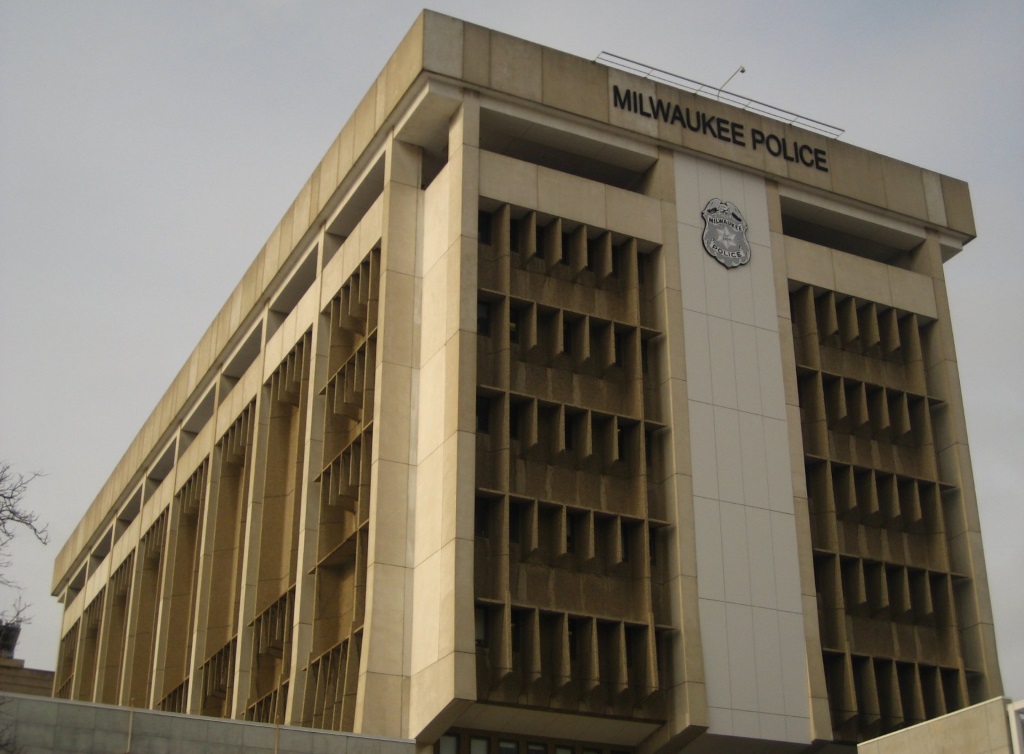Police Union Blasts Video Releases
Assails 'reckless' FPC rule requiring video of any critical incident released to victim’s family in 48 hours, to public in 15 days.
One day after the Milwaukee Fire and Police Commission (FPC) ruled in favor of creating a new policy accelerating the release of video of critical incidents, a new legal battle with the police union is on the horizon. Under the new policy, which passed Thursday and is set to go into effect on May 1, the Milwaukee Police Department (MPD) would be required to release video of any critical incident to the victim’s family within 48 hours, and to the public within 15 days.
Activists from the Milwaukee Alliance Against Racist and Political Repression worked alongside families whose loved ones have died after encountering police for two years to implement the policy change. Now, the Milwaukee Police Association has signaled that it will sue to keep the policy from taking effect.
In a press release issued Friday, the police association called the policy “reckless,” said that the FPC has “shown no reason to be a trusted partner,” and denounced activists’ efforts. “These activist groups misuse important words like ‘transparency’ and ‘trust’ to push their agenda, but at the same time they reject factual data from previous community briefings,” Milwaukee Police Association President Andrew Wagner said in the statement. “Instead of waiting for an investigation to be completed, their goal appears to be setting their own narrative. We have all seen where false narratives have been put out into the public to incite riots. These false narratives have destroyed cities and when the truth finally comes out the damage has been done.” Wagner did not reference any specific protests where false narratives led to riots. In the past, Wagner has dismissed public concerns about police misconduct as “pop culture” which focuses on “very minute incidents.”
Wagner stated that the Milwaukee Area Investigative Team—a rotating network of law enforcement investigators from every local department which investigates officer-involved shootings and deaths—feels that the policy would endanger their ability to conduct investigations. The team’s ability to conduct independent investigations has been called into question, since departments included on the team all also work with and depend on one another.
The Milwaukee Alliance issued its own statement on Friday, pushing back against the police union. “At every FPC Police and Standards Committee meeting since September, members of the MPA and/or MPD have been present and have been given significantly more time than the public to voice their concerns with the various drafts of the SOP,” a press release from the Alliance states. The group pointed to the city attorney’s opinion that there is nothing prohibiting the FPC from adopting such a policy, and suggested police officials were working to stall the creation of the policy.
“The FPC saw past these tactics and adopted a legal SOP that must be upheld and cooperated with,” the Alliance states. “Wagner is clearly aware of the power involved in controlling the narrative of critical incidents. It’s a tactic they’ve used to discredit the community whenever they harm one of our loved ones. Their accusation that families are seeking to control the narrative is actually a confession of their own behavior, entirely based on projection.” After officer-involved shootings, the Milwaukee Police Department often releases a community briefing with a narrative of events and edited body camera video. Police departments have also released dash footage to media with a narrative of what occurred, despite not being involved in actual death investigations.
The alliance has worked with many families in the area who have lost a loved one in incidents involving police or while in custody. Many of these families describe the stress and trauma they’ve endured since losing their loved one. Several have also reported feeling as though they were monitored after losing their loved ones.
Wagner, on the other hand, feels that the FPC is not considering the “irreparable harm that will come to a police officer, in the absence of a fair and unpressured investigation, free from being judged in the court of public opinion.” From Wagner’s perspective, “in almost all these situations the police officer is the victim and is guaranteed privacy protections under Marsy’s Law. They failed to consider the detrimental impact this could have on outside agencies now conducting these investigations to complete the interviews of witnesses without their memories being tainted by what they see or hear on the news.”
The union president asserts that in passing the policy, the FPC violated its own rules. “Their role is an oversight committee, not a governing body of the police,” Wagner said in a statement. In fact, according to the city’s website, the FPC hears appeals by members of the fire and police department who have been disciplined by their chiefs, disciplines employees for misconduct and independently investigates and monitors citizen complaints.
Families have worked with the Alliance to achieve video transparency for two years. Demands to release video to family within 48 hours of an incident arose in 2021, when the Alliance worked with the family of Roberto Zielinski, who was shot and killed by Milwaukee police. The death of Brieon Green in custody in the county jail the next year led to more demands for video release and increased transparency.
“There is no reason for this policy to have taken two years to pass,” the Alliance stated in a press release responding to the FPC announcement on April 20. “There is no reason why dozens of people should have to show up to countless FPC meetings to get a common sense policy passed. Justice delayed is justice denied, and there were several delays in the FPC. This process has eroded the public’s faith in the FPC.”
Still, Alliance members said they hoped the new policy would offer closure to people whose loved ones have been killed by police.
Video release policy triggers ire of Milwaukee police union was originally published by the Wisconsin Examiner.























What this policy does is take the control of critical incidents’ narratives away from the spin doctors at the police union. Milwaukee residents have paid out over $46 million in the last decade to settle police brutality suits. What’s more, 28% of the 2023 city budget goes to MPD, significantly higher than every other department. It is about the FPC holds MPD accountable for the millions spent. This policy is but a first step to holding rogue cops accountable for their actions. It disgusts me that Wagner is only concerned with the sensitivities of rogue cops and NOT the brutalized victims of their terror.. Just maybe, this policy will incentivize MPD to discipline rogue cops instead of coddling them.